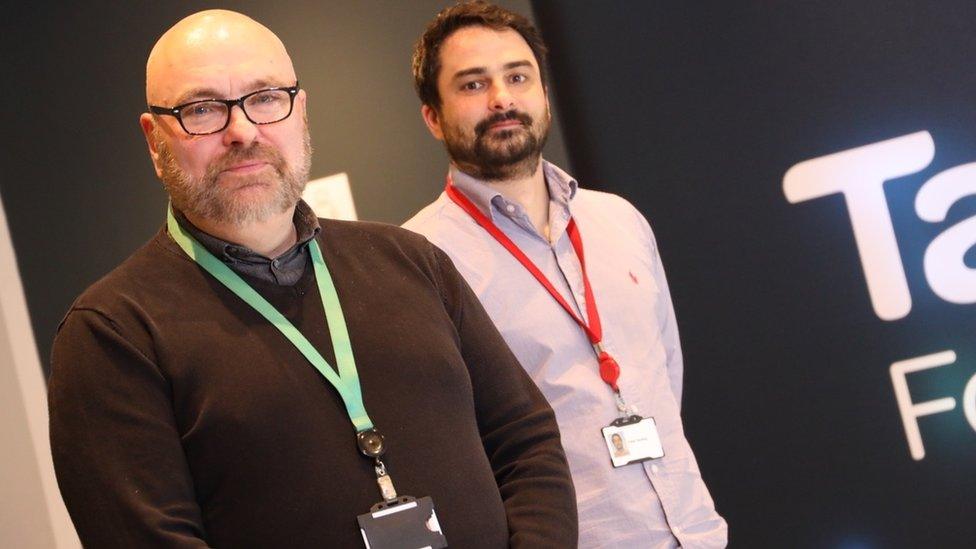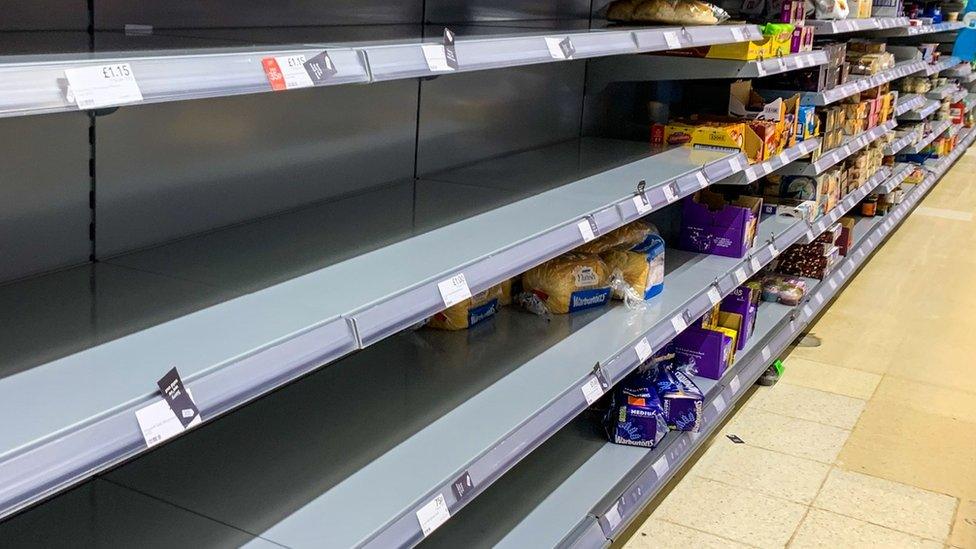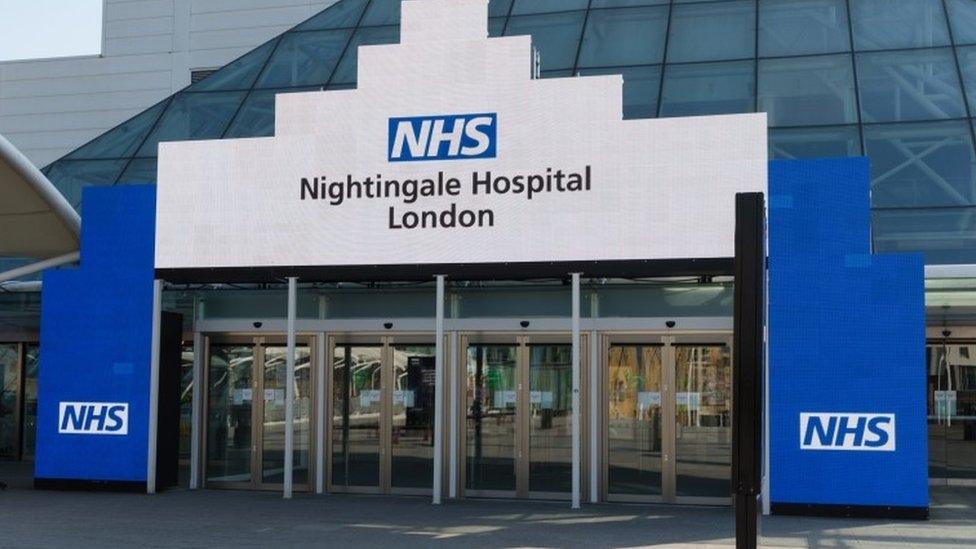Queen's Birthday Honours 2020: 'Covid-critical' broadband engineers awarded
- Published

Managers Andrew Miller and Peter Harding were on 24-hour call at the height of the coronavirus outbreak
Two engineers who were on call "day and night" to ensure hospitals, care homes, surgeries and other critical sites stayed online in the early days of the Covid crisis are to be appointed MBEs.
Peter Harding and Andrew Miller helped crucial sites, including the new Nightingale Hospitals, access the broadband connections they required.
Both welcomed the recognition, but stressed that it was a team effort.
Workers at BT, Sky and Ericsson were also honoured.
Joining Mr Harding and Mr Miller on the birthday honours list were BT's John Hayday, Reza Rahnama, Karen Smith and Gemma Towers, alongside BT Openreach's Peter Martin and Scott McPartlin.
Sky's managing director of customer service, Denise Allan, and her colleague, Ijeoma Nwamaka Ezeilo, were also awarded honours for their services to the telecommunications industry during the crisis.
It is believed to be the first time telecoms workers have been recognised in the annual list.
Mr Harding, a senior delivery manager at TalkTalk Business, said he was "extremely happy and proud" to be receiving the award in the Queen's Birthday Honours, but added that it felt "surreal" because he had simply been "doing my job".
His colleague, Mr Miller, also a senior manager, was keen to point out that, although they were were ones receiving the accolades, "there were about 12 different teams of people that our work wouldn't have been achievable without".

Early on in lockdown, food distribution was crucial as people panic-bought and shelves were emptied
They told the BBC how their workload suddenly increased as the seriousness of the pandemic and the UK's lockdown measures took hold in March.
"The first case I had was for a food distribution centre for a well-known supermarket," said Mr Miller - but, as the weeks went on, the caseload became "bigger and bigger".
The centre, which had been mothballed, was suddenly needed again, as demand for food and other goods soared, with people panic-buying in the face of a forthcoming lockdown. The warehouse needed new cabling and a taskforce of engineers to fit it. Typically, such a job would take two months to complete - but it was finished in two days.

One of the engineers' tasks was to provide extra capacity for the Excel Centre when it became London's Nightgale hospital
The two engineers' workload - 16-hour shifts were not uncommon - reflected the trajectory of the pandemic.
First, with the need to add capacity to food warehouses, later, providing broadband connectivity to newly-built hospitals as well as increasing capacity to care homes - where residents could only communicate with their families via video conferencing.
In June, attention shifted to schools, as lockdowns eased and pupils began to return.
They also sent engineers to the homes of people having to shield who were without broadband. It required some lateral thinking since workers were not allowed to enter the premises.
"In some cases they worked on a box outside and then handed it to people through the window," said Mr Harding.
Normally they would deal with hundreds of cases each month, but that rose tenfold to more than a thousand each month during the three months of lockdown.
Mr Harding said although the days were often a blur, he enjoyed working from home and seeing more of his young children.
"All I know is I've got it - and my wife can't wait to tell everyone!" he told the BBC.
Other tech-related recipients of honours included:
Jonathan Seaton, founder of Twinkl, for services to technology and education during Covid-19
June Angelides, for services to women in technology
Adam Gordon, for services to the telecommunications industry
Sheridan Ash, for services to young girls and women through technology
Andrew Ayim, for services to diversity in the technology industry
Georgina Jackson, for services to education and diversity in the video games industry